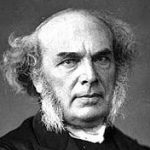Week of November 10, 2019
The Point: God works on your behalf – even in seemingly random circumstances.
The Christian Hope: Romans 8:26-32.
[26] Likewise the Spirit helps us in our weakness. For we do not know what to pray for as we ought, but the Spirit himself intercedes for us with groanings too deep for words. [27] And he who searches hearts knows what is the mind of the Spirit, because the Spirit intercedes for the saints according to the will of God. [28] And we know that for those who love God all things work together for good, for those who are called according to his purpose. [29] For those whom he foreknew he also predestined to be conformed to the image of his Son, in order that he might be the firstborn among many brothers. [30] And those whom he predestined he also called, and those whom he called he also justified, and those whom he justified he also glorified. [31] What then shall we say to these things? If God is for us, who can be against us? [32] He who did not spare his own Son but gave him up for us all, how will he not also with him graciously give us all things? [ESV]
“The Holy Spirit and Prayer [8:26-27]. In this life of expectancy Paul now brings us another encouragement. It again concerns the ministry of the Holy Spirit. This ministry he has so far portrayed in relation first to the law which He enables us to fulfil [2-8], secondly to our fallen nature which He subdues [9-13], thirdly to our adoption into God’s family, of which He assures us [14-17], and fourthly to our final inheritance of which He is the guarantee and foretaste [18-23]. Now, fifthly, he writes of the Holy Spirit in relation to our prayers [26-27]. Indeed, true Christian prayer is impossible without the Holy Spirit. It is He who causes us to cry Abba! Father! [15] when we pray. Prayer is in itself an essentially trinitarian exercise. It is access to the Father through the Son and by the Spirit. The inspiration of the Spirit is just as necessary for our prayers as the mediation of the Son. We can approach the Father only through the Son and only by the Spirit. Likewise, Paul begins [26], probably meaning that as our Christian hope sustains us, so does the Holy Spirit. In general, the Spirit helps us in our weakness, that is, in the ambiguity and frailty of our ‘already-not yet’ existence. In particular, He helps our weakness in prayer. In this sphere our infirmity is our ignorance: we do not know what to pray for as we ought. But He knows what we do not know. In consequence, the Spirit himself intercedes for us. Thus the children of God have two divine intercessors. Christ is their intercessor in the court of heaven, while the Holy Spirit is their intercessor in the theater of their own hearts. Moreover, the Holy Spirit’s intercession is said to be with groanings too deep for words. The point that Paul is making is not that the groans cannot be put into words, but that in fact they are not. They are unexpressed, rather than inexpressible. In the context, these wordless groans must surely be related to the groans both of God’s creation [22] and of God’s children [23], namely ‘agonized longings’ for final redemption and the consummation of all things. Why do we not know what to pray for? Perhaps because we are unsure whether to pray for deliverance from our sufferings or for strength to endure them. Also, since we do not know what we will be, or when or how, we are in no position to make precise requests. So the Spirit intercedes for us, and does so with speechless groans. It is truly amazing that, having written of the groaning creation and of the groaning church, Paul should now write of the groaning Spirit. The Spirit intercedes for us in unspoken groanings. That is, His intercession is accompanied by them and expressed in them. True, God’s creation and God’s children groan because of their present state of imperfection, and there is nothing imperfect about the Holy Spirit. It must be, therefore, that the Holy Spirit identifies with our groans, with the pain of the world and the church, and shares in the longing for the final freedom of both. We and He groan together. Here Paul is referring to inarticulate groans. Although wordless, however, they are not meaningless. For God the Father who searches hearts knows what is the mind of the Spirit, because the Spirit intercedes for the saints according to the will of God. So three persons are involved in our praying. First, we ourselves in our weakness do not know what to pray for. Secondly, the indwelling Spirit helps us by interceding for us and through us, with speechless groans but according to God’s will. Thirdly, God the Father, who both searches our hearts and knows the Spirit’s mind, hears and answers accordingly. Of these actors, however, it is the Spirit who is emphasized. Paul makes three statements about Him. First, the Spirit helps us (because of our weakly, half-saved situation); secondly, the Spirit himself intercedes for us (because of our ignorance of what to pray for); and thirdly, the Spirit intercedes for us according to the will of God (and therefore God listens and responds).
The steadfastness of God’s love [28-39]. Five unshakeable convictions [28]. Romans 8:28 is surely one of the best-known texts in the Bible. On it believers of every age and place have stayed their minds. It has been likened to a pillow on which to rest our weary heads. We note that verse 28 beings with the statement we know. Verse 22 began likewise. So here are two assertions of Christian knowledge, one about the groaning creation and the other about God’s providential care. Yet there are many other things which we do not know. For example, we do not know what to pray for [26]. In fact, we are caught in a continuous tension between what we know and what we do not know. It is just as foolish to claim to know what we do not know as it is to confess not to know what we do know. In those areas in which God has not plainly revealed His mind, the right attitude for us to adopt is that of Christian agnosticism [see Deut. 29:29]. But in verse 28 Paul lists five truths about God’s providence which we know. First, we know that God works, or is at work, in our lives. He is ceaselessly, energetically and purposefully active on the behalf of all those who love Him. Secondly, God is at work for the good of His people. Being Himself wholly good, His works are all expressions of His goodness and are calculated to advance His people’s good. Moreover, the ‘good’ which is the goal of all His providential dealings with us is our ultimate well-being, namely our final salvation. Verses 29-30 make this plain. Thirdly, God works for our good in all things. All things must include the sufferings of verse 17 and the groanings of verse 23. Thus all that is negative in this life is seen to have a positive purpose in the execution of God’s eternal plan. Nothing is beyond the overruling, overriding scope of His providence. Fourthly, God works in all things for the good of those who love Him. This is a necessary limitation. Paul is not expressing a general, superficial optimism that everything tends to everybody’s good in the end. No, if the good which is God’s objective is our completed salvation, then its beneficiaries are His people who are described as those who love Him. This is an unusual phrase for Paul, because his references in Romans to love are rather to God’s love for us [5:5,8; 8:35,37,39]. Nevertheless, he does elsewhere allude to our love for God, and this is a common biblical concept, since the first and great commandment is that we love God with all our being [Deut. 6:5; Mark 12:30]. Fifthly, those who love God are also described as those who have been called according to his purpose. For their love for Him is a sign and token of His prior love for them, which has found expression in His eternal purpose and His historical call. So God has a saving purpose, and is working in accordance with it. Life is not the random mess which it may sometimes appear. There are the five truths about God which, Paul writes, we know. We do not always understand what God is doing, let alone welcome it. Nor are we told that He is at work for our comfort. But we know that in all things He is working towards our supreme good. And one of the reasons we know this is that we are given many examples of it in Scripture. Five undeniable affirmations [29-30]. In these two verses, Paul elaborates what he meant in verse 28 by God’s purpose, according to which He has called us and is working everything together for our good. He traces God’s good and saving purpose through five stages from its beginning in His mind to its consummation in the coming glory. These stages he names foreknowledge, predestination, calling, justification and glorification. First comes a reference to those whom he foreknew. Since the common meaning of ‘to foreknow’ is to know something beforehand, in advance of its happening, some commentators both ancient and modern have concluded that God foresees who will believe, and that this foreknowledge is the basis of His predestination. But this cannot be right. For at least two reasons. First, in this sense God foreknows everybody and everything, whereas Paul is referring to a particular group. Secondly, if God predestines people because they are going to believe, then the ground of their salvation is in themselves and their merit, instead of in Him and His mercy, whereas Paul’s whole emphasis is on God’s free initiative of grace. Other commentators have therefore reminded us that the Hebrew verb ‘to know’ expresses much more than mere intellectual cognition; it denotes a personal relationship of care and affection. Thus, when God ‘knows’ people, He watches over them, and when he ‘knew’ the children of Israel in the desert, what is meant is that He cared for them. Indeed, Israel was the only people out of all the families of the earth whom Yahweh had ‘known, that is, loved, chosen and formed a covenant with. The meaning of ‘foreknowledge’ in the New Testament is similar. God has not rejected his people (Israel), whom he foreknew, that is, whom He loved and chose [Rom. 11:2]. Thus the only sources of divine election and predestination is divine love. Secondly, those whom he foreknew he also predestined to be conformed to the image of his Son, in order that he might be the firstborn among many brothers. The verb predestined translated the verb which means to ‘decide upon beforehand’, as in Acts 4:28. Clearly, then, a decision is involved in the process of becoming a Christian, but it is God’s decision before it can be ours. This is not to deny that we ‘decided for Christ’, and freely, but to affirm that we did so only because He had first ‘decided for us’. This emphasis on God’s gracious, sovereign decision or choice is reinforced by the vocabulary with which it is associated. On the one hand, it is attributed to God’s ‘pleasure’, ‘will’, ‘plan’ and ‘purpose’, and on the other it is traced back to ‘before the creation of the world’ or ‘before time began’. Neither Scripture nor experience allows us to weaken this teaching. Throughout the New Testament it is recognized that human beings are by nature blind, deaf, and dead, so that their conversion is impossible unless God gives them sight, hearing and life. Yet the mysteries remain. And as finite and fallen creatures we have no right to demand explanations from our infinite and perfect Creator. Nevertheless, He has thrown light on our problem in such a way as to contradict the chief objections which are raised and to show that the consequences of predestination are the opposite of what is popularly supposed, I give five examples. (1) Predestination is said to foster arrogance, since (it is alleged) God’s elect boast of their favored status. But on the contrary, predestination excludes boasting. For it fills God’s people with astonishment that He should ever have had mercy on undeserving sinners like them. Humbled before the cross, they desire to live the rest of their lives only to the praise of his glorious grace [Eph. 1:6,12,14] and to spend eternity worshipping the Lamb who was slain [Rev. 5:11-14]. (2) Predestination is said to foster uncertainty, and to create in people a neurotic anxiety as to whether they are predestined and saved or not. But this is not so. If they are unbelievers, they are entirely unconcerned about their salvation, until and unless the Holy Spirit brings them under conviction of sin as a prelude to their conversion. If they are believers, however, even when passing through a period of doubt, they know that in the end their security lies only in the eternal, predestinating will of God. Nothing else can bring such assurance and comfort. (3) Predestination is said to foster apathy. For if salvation is entirely God’s work and not ours, people argue, then all human responsibility before God has been undermined. But again this is not so. On the contrary, it is abundantly clear that Scripture’s emphasis on God’s sovereignty never diminishes our responsibility. Instead, the two lie side by side in an antinomy, which is an apparent contradiction between two truths. Why do people not come to Jesus? Is it that they cannot? Or is it that they will not? The only answer which is compatible with His own teaching is, ‘Both, even though we cannot reconcile them.’ (4) Predestination is said to foster complacency, and to breed antinomians. For, if God has predestined us to eternal salvation, why should we not live as we please, without moral restraint, and in defiance of divine law? Paul has already answered this objection in chapter 6. Those whom God has chosen and called He has united to Christ in His death and resurrection. Having died to sin, they now live a new life to God. And elsewhere Paul writes that he chose us in him before the foundation of the world, that we should be holy and blameless before him [Eph. 1:4]. Indeed, He has predestined us to be conformed to the image of his Son [8:29]. (5) Predestination is said to foster narrow-mindedness, as the elect people of God become absorbed only in themselves. The opposite is the case. The reason God called one man Abraham and his one family was not for their blessing only, but that through them all the families of the earth might be blessed. God has made us His own people, not that we should be His favorites, but that we should be His witnesses, that you may proclaim the excellencies of him who called you out of darkness into his marvelous light [1 Peter 2:9]. So the doctrine of divine predestination promotes humility, not arrogance; assurance, not apprehension; responsibility, not apathy; holiness, not complacency; and mission, not privilege. This is not to claim that there are no problems, but to indicate that they are more intellectual than pastoral. Certainly the point Paul singles out for emphasis in verse 29 is pastoral. It concerns the two practical purposes of God’s predestination. The first is that we should be conformed to the image of his Son. In the simplest possible terms, God’s eternal purpose for His people is that we should become like Jesus. The transformation process begins here and now in our character and conduct, through the work of the Holy Spirit, but will be brought to completion only when Christ comes and we see Him, and our bodies become like the body of His glory. The second purpose of God’s predestination is that, as a result of our conformity to the image of Christ, he might be the firstborn among many brothers, enjoying both the community of the family and the pre-eminence of the firstborn. We now come to Paul’s third affirmation: those whom he predestined he also called [30a]. The call of God is the historical application of His eternal predestination. His call comes to people through the gospel, and it is when the gospel is preached to them with power, and they respond to it with the obedience of faith, that we know God has chosen them. So evangelism (the preaching of the gospel), far from being rendered superfluous by God’s predestination, is indispensable, because it is the very means God has ordained by which His call comes to His people and awakens their faith. Clearly, then, what Paul means by God’s call here is not the general gospel invitation but the divine summons which raises the spiritually dead to life. It is often termed God’s ‘effective’ or ‘effectual’ call. Those whom God thus calls [30] are the same as those who are called according to his purpose [28]. Fourthly, those whom he called he also justified. God’s effective call enables those who hear it to believe, and those who believe are justified by faith. Justification is a declaration that we sinners are now righteous in God’s sight, because of His conferment upon us of a righteous status, which is indeed the righteousness of Christ Himself. It in ‘in Christ’, by virtue of our union with Him, that we have been justified. He became sin with our sin, so that we might become righteous with His righteousness. Fifthly, those whom he justified he also glorified. Our destiny is to be given new bodies in a new world, both of which will be transfigured with the glory of God. So certain is this final stage that, although it is still future, Paul puts it into the same aorist tense, as if it were past, as he has used for the other four stages which are past. In the light of his five convictions [28] and five affirmations [29-30], what then shall we say [31]? The apostle’s answer to his own question is to ask five more questions, to which there is no answer [31-39]. We will only look at the first two unanswerable questions [31-32]. If God is for us, who can be against us [31]? If Paul has simply asked, who is against us, there would immediately have been a barrage of replies. For we have formidable foes arrayed against us. But the essence of Paul’s question is contained in the ‘if’ clause. The situation Paul envisages is one in which God is for us, since He has foreknown, predestined, called, justified and glorified us. This being so, who can be against us? To that question there is no answer. All the powers of hell may set themselves together against us. But they can never prevail, since God is on our side. Paul then asks his second question: He who did not spare his own Son but gave him up for us all, how will he not also with him graciously give us all things [32]? The way Paul phrases his question banishes all doubts concerning God’s provision for us. For he points us to the cross. The God concerning whom we are asking our question whether or not He will give us all things is the God who has already given us His Son. On the one hand, and negatively, He did not spare his own Son. On the other hand, and positively, God gave him up for us all. Here in 8:32, as earlier in 5:8-10, Paul argues from the greater to the lesser, namely that since God has already given us the supreme and costliest gift of His own Son, how can He fail to lavish every other gift upon us? In giving His Son He gave everything. The cross is the guarantee of the continuing, unfailing generosity of God.” [Stott, pp. 244-255].
Questions for Discussion:
- What does Paul teach us concerning prayer in 8:26-27? What role does the Holy Spirit play in our prayers? Why does Stott write: “True Christian prayer is impossible without the Holy Spirit”? Are you trusting in and depending upon the Spirit in your prayer life?
- List and explain the meaning of the five unshakeable convictions [28] and the five undeniable affirmations [29-30]. How are these convictions and affirmations an encouragement to you as you suffer and battle sin in your life? Learn to focus on the purpose of God’s work in and for us (to be conformed to the image of His Son) as you live out your Christian life. Ask God to give you a fervent desire for this purpose to happen in your life and a peaceful faith that He can accomplish it.
- Paul concludes chapter 8 by asking the question: What then shall we say to these things [31]? He answers his own question by asking five more questions. (Note that the focus of each of these five questions is on Jesus Christ). Our passage [31-32] looks at the first two of these five questions. What is Paul teaching us by asking these two questions? What sense of comfort, encouragement, and assurance do you receive from the answers to these two questions?
References:
Romans, vol. 2, James Boice, Baker.
The Epistle to the Romans, Leon Morris, Eerdmans.
Romans, Thomas Schreiner, BENT, Baker.
Romans, John Stott, Inter Varsity.

















